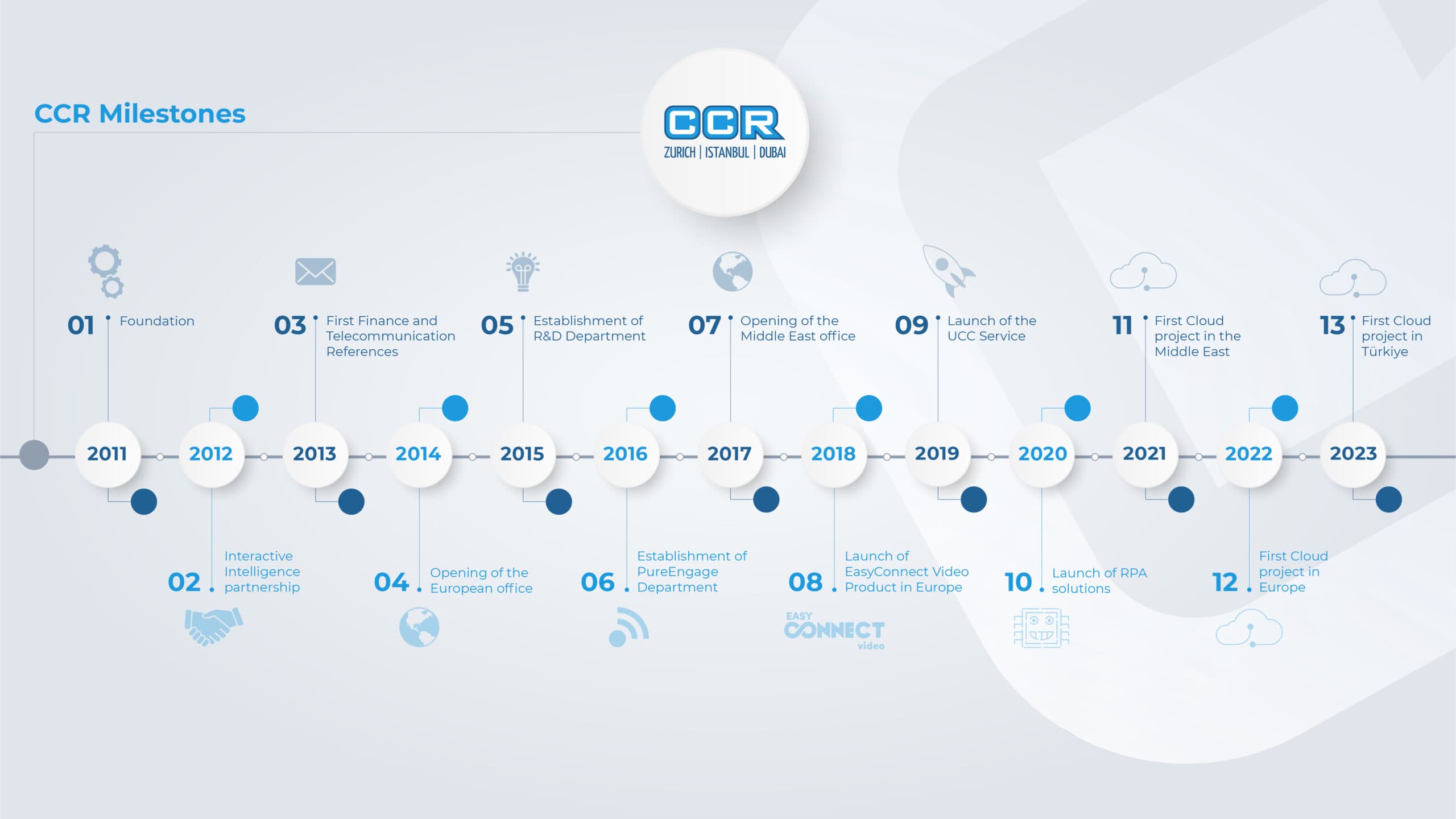Comprehensive Guide To CCR History: Understanding Its Evolution And Importance
Mar 25 2025
CCR history plays a crucial role in the development of credit systems worldwide. As financial institutions and businesses rely heavily on credit data, understanding the history of credit reporting is essential for both consumers and professionals. This article delves deep into the origins, evolution, and significance of CCR history, providing valuable insights for anyone interested in credit management.
The concept of credit reporting has evolved significantly over the years, shaping modern financial practices. From its humble beginnings to the sophisticated systems we have today, CCR history reflects the changing landscape of financial interactions. By exploring this history, we gain a better understanding of how credit decisions are made and how they impact individuals and businesses.
In this article, we will cover various aspects of CCR history, including its origins, key milestones, and its relevance in today's financial world. Whether you're a consumer looking to improve your credit score or a professional seeking to enhance your knowledge of credit systems, this guide offers comprehensive insights into the subject.
Read also:Girthmaster Vs Miaz Videos The Ultimate Comparison
Table of Contents
- Introduction to CCR History
- Early Origins of Credit Reporting
- Key Milestones in CCR Development
- Regulatory Impact on CCR Systems
- Modern Advancements in Credit Reporting
- Data Management in CCR Systems
- Global Perspective on CCR History
- Challenges in Credit Reporting
- Future Trends in CCR Systems
- Conclusion and Call to Action
Introduction to CCR History
CCR history refers to the evolution of consumer credit reporting systems, which have become integral to modern financial systems. These systems track and analyze an individual's credit behavior, influencing lending decisions and financial opportunities.
As credit became a fundamental aspect of economic activity, the need for reliable credit reporting mechanisms grew. This section explores the foundational concepts of credit reporting and its transformation over time.
Early Origins of Credit Reporting
Merchant Networks and Community Trust
The origins of credit reporting can be traced back to merchant networks in the 18th and 19th centuries. During this period, local merchants relied on community trust and word-of-mouth to assess the creditworthiness of potential customers.
- Merchants maintained informal records of customer payment histories.
- These records were shared within local networks to mitigate risks.
- Community-based trust systems laid the groundwork for formal credit reporting.
These early practices demonstrated the importance of credit history in facilitating trade and commerce.
Key Milestones in CCR Development
Establishment of Credit Bureaus
The formalization of credit reporting began with the establishment of credit bureaus in the late 19th century. These organizations collected and maintained credit information on a larger scale, providing lenders with standardized data.
- Equifax, founded in 1899, was one of the first major credit bureaus.
- The introduction of credit scoring models in the mid-20th century revolutionized the industry.
- Technological advancements enabled more accurate and efficient credit reporting.
These milestones marked significant progress in the development of credit reporting systems.
Read also:Who Is Chen Zheyuans Girlfriend Unveiling The Relationship And Personal Life
Regulatory Impact on CCR Systems
Consumer Protection Laws
As credit reporting systems expanded, concerns about consumer privacy and accuracy led to the implementation of regulatory frameworks. Key laws such as the Fair Credit Reporting Act (FCRA) in the United States aimed to protect consumers and ensure fair practices.
Regulations have played a crucial role in shaping CCR history by establishing standards for data collection, accuracy, and consumer rights. These laws continue to evolve to address new challenges in the digital age.
Modern Advancements in Credit Reporting
Technology and Data Analytics
The integration of advanced technologies has transformed modern credit reporting systems. Data analytics, artificial intelligence, and machine learning have enhanced the accuracy and efficiency of credit assessments.
- Real-time data processing enables faster credit decisions.
- Alternative data sources, such as utility payments, are increasingly used to assess creditworthiness.
- Blockchain technology offers potential solutions for secure and transparent credit reporting.
These advancements reflect the ongoing evolution of CCR history in response to technological innovations.
Data Management in CCR Systems
Ensuring Accuracy and Security
Data management is a critical aspect of CCR systems, as inaccuracies can lead to adverse consequences for consumers. Credit bureaus and financial institutions employ rigorous processes to ensure data accuracy and security.
Key practices include:
- Regular data updates and verification.
- Implementation of cybersecurity measures to protect sensitive information.
- Consumer access to credit reports for error correction.
Effective data management is essential for maintaining trust in credit reporting systems.
Global Perspective on CCR History
Diverse Approaches to Credit Reporting
CCR history varies across different regions, reflecting diverse economic and cultural contexts. While developed countries have well-established credit reporting systems, emerging markets are adopting innovative solutions to overcome challenges.
- Some countries utilize centralized credit registries operated by government entities.
- Others rely on private credit bureaus to provide credit information services.
- Global collaboration and knowledge sharing contribute to the advancement of credit reporting practices worldwide.
Understanding the global perspective on CCR history provides valuable insights into the diverse approaches to credit management.
Challenges in Credit Reporting
Addressing Inequalities and Biases
Despite significant progress, credit reporting systems face challenges related to inequalities and biases. Certain populations, such as low-income individuals and minorities, may experience limited access to credit due to systemic barriers.
Efforts to address these challenges include:
- Expanding access to alternative credit data sources.
- Developing fair and inclusive credit scoring models.
- Promoting financial education and awareness.
Overcoming these challenges is essential for creating equitable credit systems.
Future Trends in CCR Systems
Innovations Shaping the Future
The future of CCR history is shaped by ongoing innovations in technology and financial practices. Emerging trends such as decentralized finance (DeFi) and digital currencies may redefine traditional credit reporting systems.
- Increased adoption of open banking initiatives to enhance data access.
- Development of personalized credit products based on advanced analytics.
- Greater emphasis on sustainability and ethical considerations in credit decision-making.
These trends highlight the dynamic nature of CCR history and its potential to adapt to changing needs.
Conclusion and Call to Action
In conclusion, CCR history represents a fascinating journey of innovation and adaptation in the financial world. From its early beginnings to the sophisticated systems we have today, credit reporting has evolved to meet the needs of consumers and businesses alike.
To further enhance your understanding of CCR history, we encourage you to explore related resources and stay informed about developments in the field. Feel free to leave comments or questions below, and consider sharing this article with others who may find it valuable.
For more insights into financial topics, explore our other articles and continue your journey toward financial literacy and expertise.
Data Sources:
- Federal Trade Commission (FTC) - Fair Credit Reporting Act (FCRA)
- Consumer Financial Protection Bureau (CFPB)
- World Bank - Global Credit Reporting Systems


